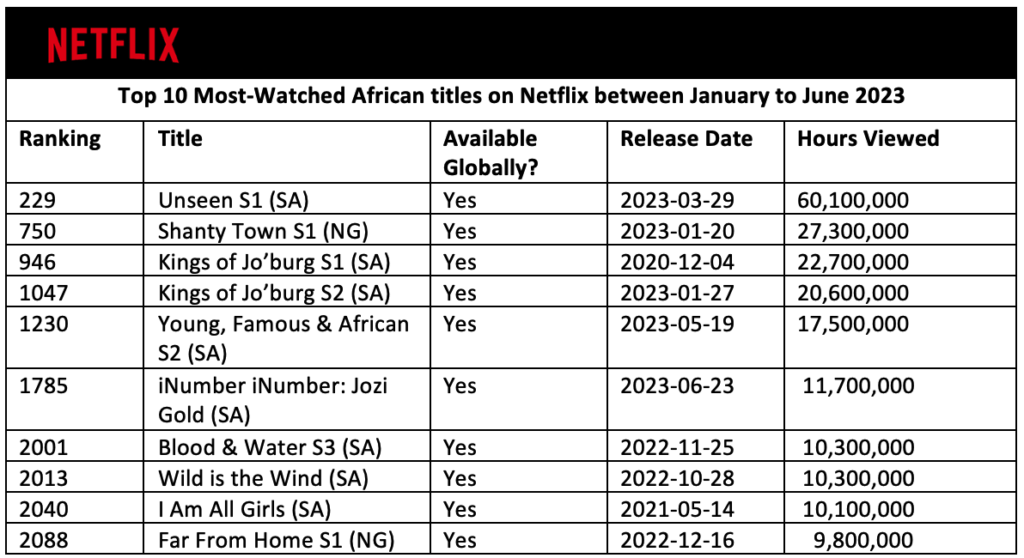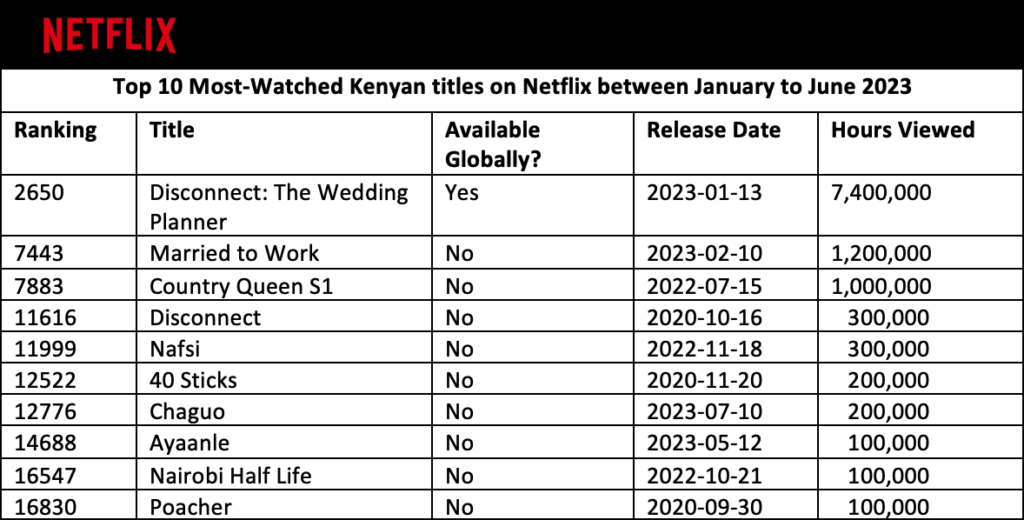On Tuesday, Netflix, intent on leading the market even in transparency, released its viewership data from January to June 2023, a first for the streaming giant as it aims to appease creators and advertisers (and journalists) who have continuously asked for more streaming data. The report, titled “What We Watched: A Netflix Report”, tallies an extensive list of 18,214 titles (99% of Netflix entire catalogue) based on hours viewed (for both original and licensed titles watched for over 50,000 hours, rounded off to the nearest 100,000 hours viewed), premiere data, and whether it’s a global release or not. While more segmentation based on region and number of territories for the non-global releases etc would have been a nice addition, this report, to be released semi-annually, is the most transparent any streamer has ever been with its viewership numbers.
Some context about Netflix’s viewership metrics over the years. In 2021, the streamer switched its metrics from number of accounts watching a particular title to hours viewed in what it described as a “slightly better indicator of the overall success of their titles and member satisfaction.” Since June 2023, it also adopted the “views” metric, which is total hours viewed divided by runtime, the formula it uses to rank its weekly top 10 and Most Popular lists.
This transparency fits into SAG-AFTRA and WGA strike negotiation agreements for the US market, however, questions arise on how this data will be instrumental in international markets Netflix is investing in, like Africa.
“Can African creatives, for instance, use it to leverage for more equitable participation, and especially pay?” Nigerian entrepreneur and investor Dayo Ogunyemi asks, especially in cases where African titles outperform Western titles with generally bigger budgets and better compensation.
Of course, with such queries, there are caveats to consider, like the date of release, which generally affects the number of hours viewed. For instance, in the report, action thriller The Night Agent, released in March 2023, was Netflix’s most popular title in the first half of 2023, clocking 812,100,000 hours of viewership, ahead of Wednesday (released in November 2022) at 507,700,000 hours. However, by December 2022, Wednesday had already raked up 1.02 billion hours in only three weeks after release. That’s pretty impressive compared to The Night Agent’s three-month viewership numbers.
For African titles, the South African Fatma adaptation Unseen, released in March 2023, leads with 60,100,000 hours, followed by Nigerian crime thriller Shanty Town (January 2023) at 27,300,000 hours. Key to note is that 8 out of 10 most-watched African titles are South African, a resounding validation of why it’s a critical market in the continent’s streaming wars. Perhaps even more impressive is that iNumber iNumber: Jozi Gold, a movie, was able to pull off 11,700,000 hours despite being released a week to June’s end – the cutoff month for this report.

Compared to South Africa and Nigeria, Kenya didn’t quite hit the mark, with only three titles crossing into six figures in terms of hours viewed: Tosh Gitonga’s film Disconnect: The Wedding Planner, released in January 2023 at 7,400,000 hours; Married to Work (a Tanzanian-Kenyan collaboration), released in February 2023 at 1,200,000 hours; and Country Queen, released in July 2022 at 1,000,000 hours. Disconnect, Nafsi, 40 Sticks, Chaguo, Ayaanle, Nairobi Half Life and Poacher follow in the hundred thousands, in that order. There are a few factors to consider here though; unlike their South African and Nigerian counterparts, none of these Kenyan titles were released globally, save for Disconnect: The Wedding Planner, which could explain the viewership numbers. For instance, Country Queen, as monumental as it is as Kenya’s first series on Netflix, isn’t available (on Netflix) in some European markets due to distribution rights with co-producing partner Arte.

Access Netflix’s full report here.
Enjoyed this article?
To receive the latest updates from Sinema Focus directly to your inbox, subscribe now.











